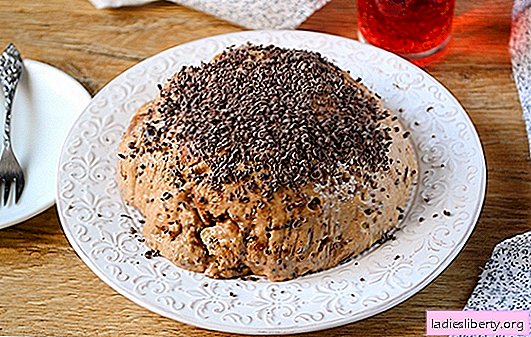
If you always manage to keep emotions under control, you are a man of rare self-control! But most of us experience stress more often than we would like. You must admit that negative emotions often force us to eat a lot of high-calorie food. Trying to get away from trouble, we switch to food. Even the most seemingly trifling excitement can cause overeating. It seems that just eating, and we will immediately calm down, and the problems will be beautifully and easily solved by themselves.
“Delicious” vicious circle ...
Delicious food acts like a drug. When the mood is "at zero", we tend to think that we feel better after some delicacy. This is actually an illusion. Food causes pleasant emotions only at the moment when we eat it. As soon as our plate becomes empty, a new reason for a bad mood appears. Now we are scolding ourselves for once again having “seized” our stress. The result - a vicious circle, to get out of which is not so easy.
You eat under stress. Why?
From the point of view of physiology, eating tasty food activates the production of dopamine in the brain. This so-called "hormone of joy", in turn, is a stimulant of the center of pleasure in the body. With every unpleasant situation, the body will require more and more goodies.
Psychologists explain emotional overeating very simply. When we eat what we like, we are immersed in the pleasant memories associated with these products. You may remember how, in childhood, mother used to make your favorite cherry pie. And to bring back the once-tested emotions, you eat this cake again and again. Such momentary "amenities" necessarily affect the weight, adding a couple of pounds to the figure. However, emotional overeating can be managed. Learn how!
5 practical advice in the fight against overeating
1. Learn to distinguish the feeling of true hunger from the desire to "seize stress." Most often, emotional overeating is just a habit. By getting rid of it, you solve the problem of food abuse.
2. Include in the diet healthy fats and carbohydrates. Fruits, legumes, bread, whole grain cereals, nuts, vegetable oil, and fish are the foods you should eat daily. Remember, a good mood can be created using the "right" food! But the deficiency of vitamins and minerals - a direct way to stress and overeating.
3. Do not pounce on food spontaneously. Take a short pause for at least 15 minutes. It is possible, after waiting a bit, you no longer remember what you wanted to eat, but just decide to drink a glass of water.
4. "Jam stress" also need to be able to. If you understand that you cannot stop eating, try replacing high-calorie foods with more healthy foods. Berries with whipped cream - a great alternative to cake! And, importantly, the benefits of such a delicacy are much greater.
5. And if after a hearty dinner instead of one cookie for tea, you ate a whole box? Try to concentrate on what you feel. Try to realize that it does not make you feel any better. On the contrary - sweet in such quantities was clearly superfluous. Do this "exercise" every time you realize that you have eaten. Over time, you will be able to stop on time.
And, perhaps most important. Even if you understand that overeating is your problem, do not be too hard on yourself. Samoedstvo will only lead to a feeling of oppression and dissatisfaction. But if you make small victories over your own hunger every day, then very soon you will achieve great results and be proud of yourself. Remember, your food should be a joy and benefit!











